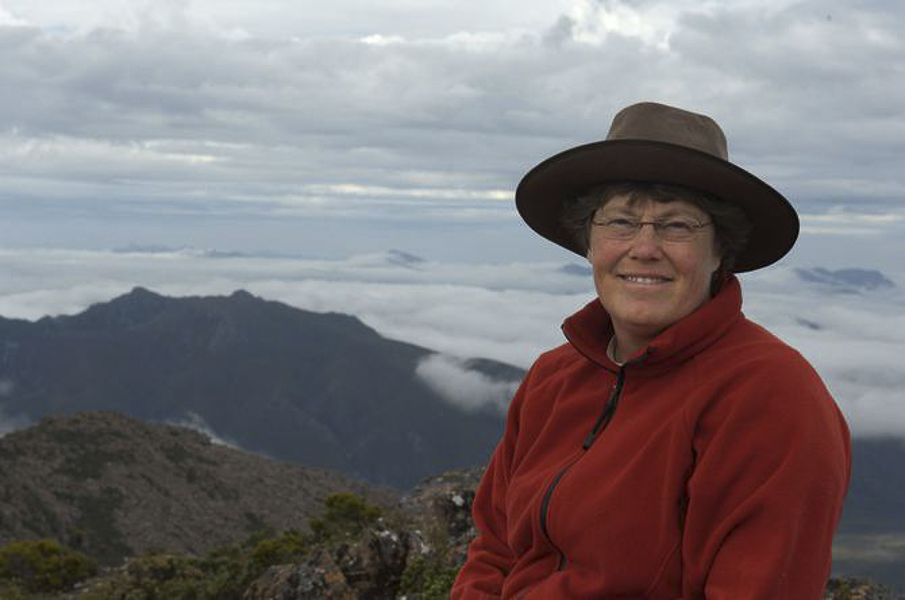
Professor Menna Jones
Professor of Zoology, University of Tasmania
See Professor Jones’s full research profile here.
Research outputs linked to policy change and decision-making
- Conservation of the Tasmanian devil. The key project impacts over 22 years have been to: 1) establish the severity of the problem and initiate government action; 2) publish a decision framework early in the epidemic to guide management and research priorities for emerging infectious diseases globally (PloS Biol, 2006); 3) establish multiple lines of evidence for rapid evolution of resistance and tolerance to devil facial tumour disease (DFTD) in devils in response to the epidemic (e.g. Nat. Comm. 2016; Proc. B 2018; PNAS 2006; Ecol. Lett. 2017); and 4) project results have underpinned the management strategy of the Tasmanian government Save the Tasmanian Devil program since its inception, including a major policy shift in the last 5 years to managing for persistence, rather than extinction. Following Professor Jones’ instrumental role in discovering DFTD (2001), she built a transdisciplinary, international team of ecologists, epidemiologists and geneticists from Australia, the US and the UK to understand this novel transmissible cancer and support conservation management. Professor Jones leads the Tasmanian field research program and provides the ecological framework, field data and genetic samples for genomics and modelling, funded by 3 Australian Research Council (ARC) and 4 US National Science Foundation grants (total ~$10 million). My research has built the largest data and genetic sample sets for any emerging infectious disease (EID) globally, spanning disease outbreak at many sites across Tasmania, enabling significant global advances in knowledge of EIDs and in facilitating the ability of natural systems to self-heal.
- Applying an ecological systems approach to conservation and restoration in the Tasmanian Midlands agricultural region. The project’s impacts are in translating new knowledge of the requirements of threatened species in a fragmented agricultural landscape to direct restoration efforts in real time. Professor Jones used GPS collars, remote cameras and landscape genetics to develop a mechanistic understanding of the multi-scale habitat and connectivity needs for wildlife in a fragmented farming landscape with high cat densities. She works in close collaboration with ARC linkage project partner Greening Australia, Bush Heritage Australia, Tasmanian Land Conservancy and farmers in the Tasmanian Midlands.
- Testing ecologically based cat control to facilitate expansion of reintroduced quolls in the Ikara-Flinders Ranges National Park. Key project impacts are immediate uptake by the South Australian Department for Environment and Water Bounceback program to test and implement ecological systems-based approaches to cat management. Supported by an ARC discovery project, Professor Jones experimentally test large-scale destruction of rabbit warrens to reduce cat impacts and enable reintroduced western quolls to increase populations and extent of occupancy. They go beyond fences and islands to test natural ecological levers to control the impacts of feral cats and restore native biodiversity in large, open landscapes.
Current academic employment and positions
- 2019–present: professor of zoology, University of Tasmania.
Highest qualification
- 1996: PhD, University of Tasmania.
Major prizes, medals and honours
- 2019: Australian Ecology Research Award, Ecological Society of Australia
- 2017: Fulbright Tasmania Senior Scholarship
- 2011: Sherman Eureka Prize for Environmental Research (leader)
- 2005: The Australian Geographic Society Conservation Award.
Roles on government or regional organisation committees
- 2020–present: member, eastern barred bandicoot technical reference group (NRM North)
- 2017–present: member, International Union for Conservation of Nature (IUCN) World Commission on Protected Areas connectivity conservation specialist group
- 2016–present: member, both steering committee and research working group, Bruny Island cat management project (NRM South, Tasmanian Department of Primary Industries, Parks, Water and Environment, Kingborough Council)
- 2014–present: member, steering committee, Midlands restoration program, Greening Australia
- 2012–present: member, Tasmanian devil molecular research advisory panel
- 2002–present: member, IUCN/Species Survival Commission Australasian marsupial and monotreme specialist group.
Links with non-government groups or networks
- member: global EcoHealth Network, Four Islands EcoHealth program (2020–present)
- collaboration: Greening Australia, Bush Heritage Australia, Tasmanian Land Conservancy.
My Projects
 Current project
Current project Completed project
Completed project
NESP RLH, 2021-2027NESP, 2015-2021NERP, 2012-2015TRaCK, 2005-present
